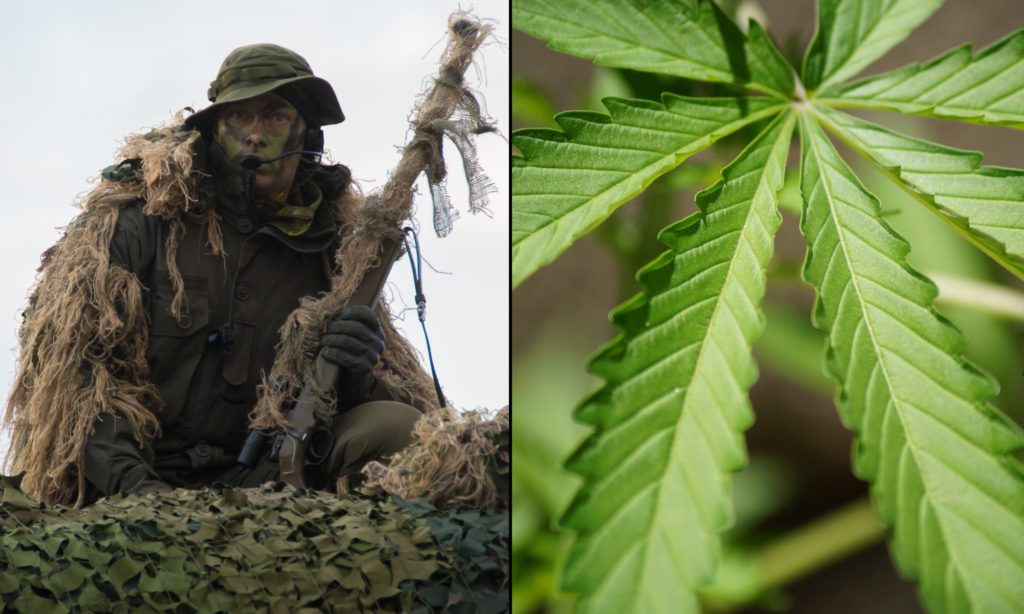Even though hemp-derived CBD is federally legal, army soldiers are not permitted to use it—but the military branch is now seeking information on using hemp yarn in uniforms to help camouflage snipers.
Camouflage Sniper Uniforms
Because there has always been a need to hide from the enemy, the function of camouflage is very simple. It is used to conceal yourself and your equipment from the opponent. This allows a person to go unnoticed in a given area or situation. Hemp appears to be gaining traction in the design of these suits, with the US Army showing interest in the plant’s textile benefits to make more effective sniper uniforms.
Camouflage clothing has two basic components that aid in concealment: color and pattern. Camouflage is typically composed of muted tones that correspond to the dominant colors of the surrounding environment.
The US Army is always looking for ways to improve. One recent suggestion for improving their operations involves the ability to conceal snipers from enemies. While Army soldiers cannot use hemp-derived cannabidiol (CBD), the military branch has now requested information on the possibility of using hemp yarn in uniforms to assist snipers in achieving these two elements.

The military is conducting research into the most effective ways to use hemp
The United States Army wants to make sniper uniforms out of Hemp
The US Army stated in a request for information (RFI) posted a few weeks ago that it is interested in exploring alternative materials to improve sniper uniforms to hide from enemy combatants in close proximity. Both jute and hemp are among the materials that the department experts believe could help the “Operational and Individual Clothing for the Improved Ghillie System (IGS).”
The US Army’s Product Manager Soldier Clothing and Individual Equipment division is “seeking approximately a 48 lb. Jute Count, 3 ply, Jute, Hemp or similar natural fiber, yarn/twine in a natural color,” it continues. “The current demand for the Jute/Hemp yarn is 400,000 yards.”
“Interest is specifically in a yarn/twine/thread used to break up the Snipers outline made from Jute, Hemp or similar natural fiber,” the notice says
The 2018 Farm Bill made hemp legal on a federal level. While many people associate the crop with its derivatives, such as CBD oil, there is growing interest in its other industrial applications, thanks to its unique durability, versatility, and low environmental impact. Businesses have marketed everything from hemp fabric for clothing to hemp concrete for construction.
According to studies, the complex three-dimensional structure of hemp fibers results in three times the moisture absorption rate of cotton and kills bacteria that come into contact with woven fabric within one hour. Hemp-based materials are also fast-drying, can block more than 95 percent of ultraviolet rays, are non-fading up to 370° C (698 F°), and do not burn at 1000° (1,832 F°).
Requirements for Hemp Uniforms
- Under the supplier guidelines of the United States Army, finished hemp yarn can be imported from other countries or spun domestically; jute fabric must be spun in the United States, but raw materials can be imported.
- According to the US Army, the material cannot pose a health risk to soldiers, must be compatible with prolonged, direct skin contact, and cannot add significant weight to the uniforms.
- The US Army’s RFI is issued solely for information gathering and planning purposes, does not constitute formal bidding, and “will not directly result in any contract awards,” according to the Army.
Also read: Royal Navy Sailors Get New Uniforms That are “Cooler and Fireproof.”













